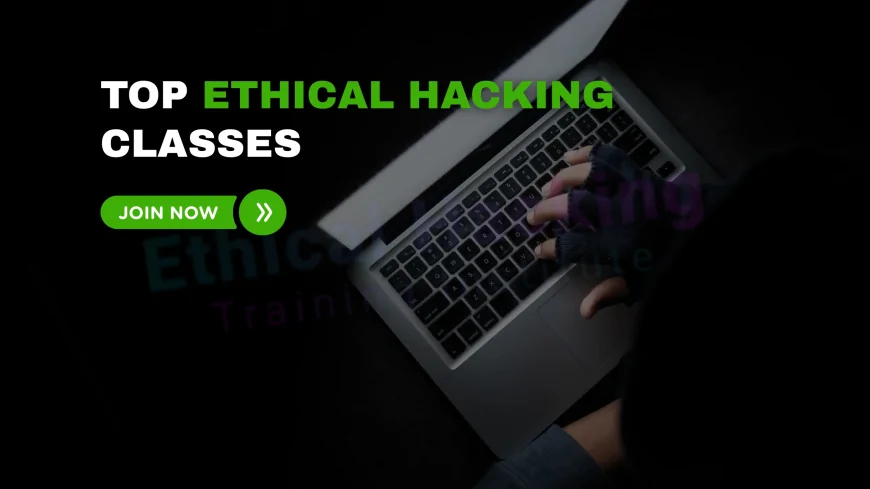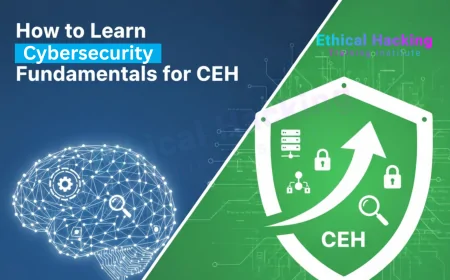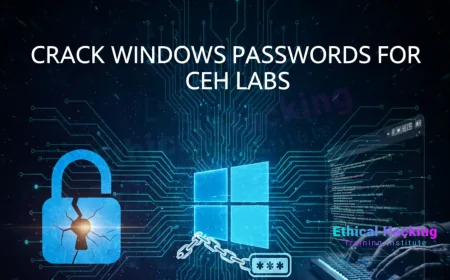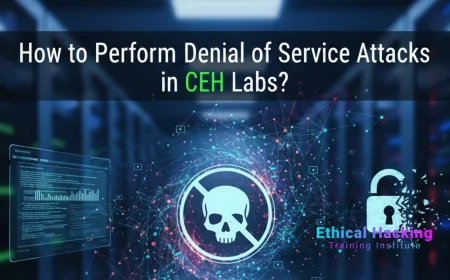Find Ethical Hacking Classes Near You: Top Local Courses for Cybersecurity Enthusiasts | Learn Ethical Hacking Close to Home: Best Local Classes for Beginners
Find ethical hacking classes near you with this comprehensive guide. Explore top local cybersecurity training programs, hands-on courses, certifications, tools, and career opportunities for aspiring ethical hackers.

Table of Contents
- Introduction
- What is Ethical Hacking?
- Importance of Local Ethical Hacking Classes
- Features of Top Local Hacking Courses
- How to Find Ethical Hacking Classes Near You
- Types of Ethical Hacking Courses Offered Locally
- Top Ethical Hacking Institutes in Your City
- Certifications You Can Pursue
- Tools and Techniques Taught
- Career Path After Ethical Hacking Training
- FAQs
- Conclusion
Introduction
Cybercrime is evolving rapidly, and so is the need for ethical hackers. Whether you’re a student, IT professional, or tech enthusiast, ethical hacking can open doors to high-paying cybersecurity careers. This guide helps you locate the best ethical hacking classes near you and understand what to expect from local cybersecurity programs.
What is Ethical Hacking?
Ethical hacking, also known as penetration testing or white-hat hacking, is the authorized practice of probing computer systems, networks, and applications for security vulnerabilities. The goal is to identify and fix weaknesses before malicious hackers can exploit them.
Ethical hackers use the same tools, techniques, and processes as cybercriminals, but they do so legally and with permission from the organization. Their work is essential in preventing data breaches, financial theft, and cyberattacks.
Common tasks in ethical hacking include:
- Scanning for open ports and system weaknesses
- Testing firewalls, antivirus, and intrusion detection systems
- Simulating phishing or social engineering attacks
- Reporting vulnerabilities with actionable solutions
Ethical hacking plays a crucial role in modern cybersecurity, especially in industries like finance, healthcare, defense, and IT. Certified professionals such as CEH (Certified Ethical Hacker) are often employed by government agencies, corporations, and cybersecurity firms to safeguard critical infrastructure and sensitive information.
Importance of Local Ethical Hacking Classes
While online courses offer convenience, local ethical hacking classes provide a level of engagement and hands-on training that’s difficult to replicate in virtual settings. For aspiring cybersecurity professionals, enrolling in a local class can make a significant difference in both skill development and career growth.
Here’s why local ethical hacking training is important:
- Personalized Learning Experience: Face-to-face interaction with instructors allows for immediate feedback, doubt resolution, and personalized guidance tailored to your learning pace.
- Hands-On Lab Access: Local classes often provide physical access to cybersecurity labs equipped with routers, switches, and isolated networks, giving you practical, real-world exposure.
- Live Demonstrations and Workshops: Instructors can demonstrate tools and techniques in real-time, which enhances comprehension and retention of complex hacking concepts.
- Networking Opportunities: You get to connect with like-minded peers, local cybersecurity professionals, and mentors, opening doors to internships, jobs, and collaborations.
- Structured Curriculum: Most local institutions follow a step-by-step curriculum aligned with global certifications like CEH, OSCP, or CompTIA Security+, ensuring you're job-market ready.
- Motivation and Accountability: Regular in-person sessions help maintain consistency, motivation, and accountability—something many learners struggle with in self-paced online programs.
- Local Hiring Connections: Training centers often have strong ties with regional employers and may offer direct placement assistance or campus drives.
Whether you're a student looking for practical experience or a professional aiming to transition into cybersecurity, local ethical hacking classes offer immersive learning and career-oriented outcomes that are hard to beat.
Features of Top Local Hacking Courses
- Certified instructors with real-world experience
- Hands-on lab sessions using real tools
- Industry-recognized certifications like CEH, CHFI, or CompTIA Security+
- Flexible class schedules (weekend/evening batches)
- Placement assistance and internship support
How to Find Ethical Hacking Classes Near You
Use these strategies to find the best local training:
- Google Search: Use terms like “ethical hacking classes near me” or “CEH training + [your city].”
- LinkedIn & Forums: Ask in cybersecurity groups for local recommendations.
- Meetup & Eventbrite: Look for workshops and bootcamps in your area.
- Visit Training Institutes: Inquire at reputed IT and cybersecurity training centers.
Types of Ethical Hacking Courses Offered Locally
- Classroom-Based Courses: Ideal for students preferring face-to-face learning.
- Weekend Bootcamps: Great for working professionals.
- Corporate Training: Tailored for in-house cybersecurity teams.
- Workshops and Hackathons: Short-term, skill-focused events.
Top Ethical Hacking Institutes in Your City
Depending on where you live, look for these common and trusted names:
- WebAsha Technologies – Pune, India
Certifications You Can Pursue
- Certified Ethical Hacker (CEH)
- EC-Council Certified Security Analyst (ECSA)
- CompTIA Security+
- Certified Penetration Testing Engineer (CPTE)
- Certified Network Defender (CND)
Tools and Techniques Taught
Top classes teach practical skills using industry-grade tools like:
- Wireshark
- Nmap
- Metasploit
- Burp Suite
- John the Ripper
- Kali Linux
Students learn techniques like penetration testing, social engineering, vulnerability scanning, and wireless network hacking.
Career Path After Ethical Hacking Training
After completing an ethical hacking course, you can explore roles such as:
- Penetration Tester
- Security Analyst
- Cybersecurity Consultant
- Security Operations Center (SOC) Analyst
- Network Security Engineer
Entry-level salaries start from $40,000 globally, and can go beyond $100,000+ with experience and certifications.
FAQs -
1. What is ethical hacking?
Ethical hacking is legally probing systems for security weaknesses to help prevent malicious attacks.
2. How do I find ethical hacking classes near me?
You can search online, check local IT training centers, or use platforms like Meetup or Eventbrite to find local workshops.
3. Are ethical hacking classes suitable for beginners?
Yes. Many institutes offer beginner-friendly courses with foundational topics in networking and security.
4. What is the duration of a typical ethical hacking course?
Courses range from 30 hours (short-term) to 3 months (comprehensive programs).
5. Do I need coding knowledge to start ethical hacking?
Basic knowledge helps, but many courses start from scratch and cover essential programming like Python or Bash.
6. What certifications should I pursue in ethical hacking?
CEH (Certified Ethical Hacker), CompTIA Security+, and ECSA are the most recognized ones.
7. How much do ethical hacking classes cost?
Costs range from $100 for short workshops to $1000+ for certification-aligned programs.
8. Are local classes better than online courses?
Local classes offer live mentoring and hands-on labs, which can benefit learners who need more structure.
9. Can I get a job after completing an ethical hacking course?
Yes. Many companies hire entry-level cybersecurity professionals with training and certification.
10. What tools will I learn in ethical hacking classes?
Common tools include Nmap, Wireshark, Metasploit, and Burp Suite.
11. Can I attend weekend or evening classes?
Yes. Most local training centers offer flexible batch timings for working professionals.
12. Are ethical hacking courses available in colleges?
Yes, some universities and technical colleges now offer ethical hacking as part of their curriculum.
13. What’s the difference between CEH and OSCP?
CEH is theory and tool-focused, while OSCP is more hands-on and lab-intensive.
14. Can I learn ethical hacking without a computer science degree?
Absolutely. Many ethical hackers come from non-IT backgrounds and learn through certification courses.
15. Do ethical hacking classes provide certification?
Yes. Most include a certificate of completion and prepare you for exams like CEH.
16. What are the job roles after completing CEH?
Roles include Penetration Tester, Security Analyst, Network Security Engineer, and SOC Analyst.
17. Are ethical hacking courses available in regional languages?
Yes, some institutes offer courses in Hindi, Marathi, and other regional languages in India.
18. Can I learn ethical hacking in a bootcamp format?
Yes. Bootcamps offer accelerated, intensive training ideal for fast-track learners.
19. Do I get hands-on lab practice?
Yes. Ethical hacking training emphasizes real-world scenarios and tools for practical learning.
20. Are there age restrictions for learning ethical hacking?
No. Anyone with a passion for cybersecurity—students, working professionals, or enthusiasts—can join.
Conclusion
Finding ethical hacking classes near you is the first step toward a dynamic and impactful cybersecurity career. Whether you prefer a structured classroom or flexible weekend training, local institutes offer hands-on, certification-aligned programs to prepare you for real-world cyber threats. Take the leap and secure your digital future today.
What's Your Reaction?
 Like
0
Like
0
 Dislike
0
Dislike
0
 Love
0
Love
0
 Funny
0
Funny
0
 Angry
0
Angry
0
 Sad
0
Sad
0
 Wow
0
Wow
0


















